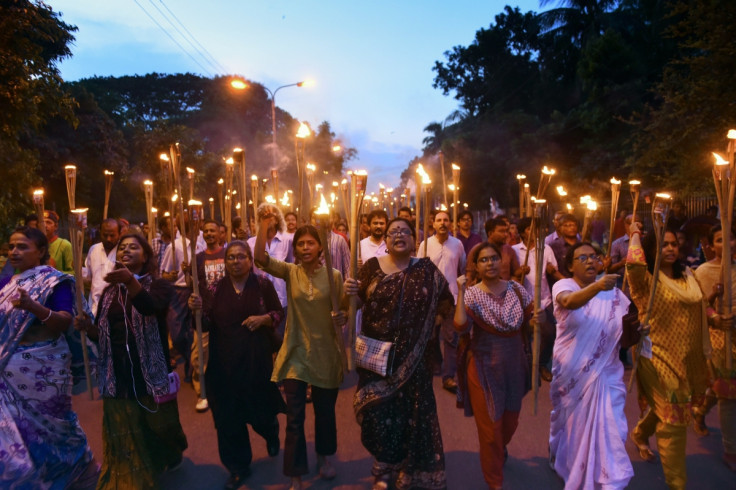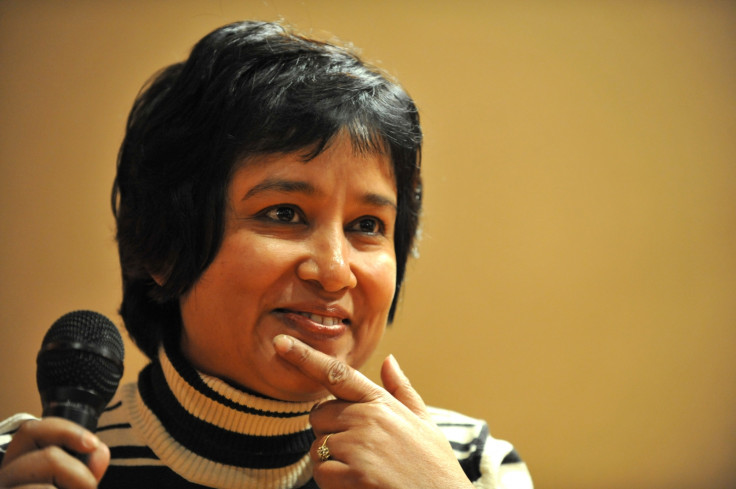Bangladesh blogger murders: Islamist hit-list highlights risk to writers at home and abroad

This year, four secularist writers have been brutally murdered in Bangladesh. Avijit Roy, Ananta Bijoy Das, Washiqur Rahman, and Niloy Chakrabarti were all bloggers who wrote about atheism, rationalism, and science. They were critical of fundamentalism, of Islam and other religions.
The murders are the latest in a string of violent killings. It began in 2013 when blogger Asif Mohiuddin was attacked by a group of men with machetes, the same brutal method used in this year's murders. He survived. That same year, Ahmed Rajib Haider, another blogger, was hacked to death in the same way.
They are still looking for me. Just a few days ago I got threats. It has become very normal for me, but I still have to take care. I don't share my location anywhere
In 2014, the violence against online writers reduced but attacks against individuals critical of religion continued. Television presenter Nurul Islam Faruqi was slaughtered at his home. Humanist academic Shafiul Islam, who had called for a ban on face veils, was murdered too.
Public space is closing for secularist writers and thinkers in Bangladesh. Many have stopped writing altogether; others continue, knowing that they do so at immense threat to their own lives. Those who have the means have fled the country. Others are desperately seeking an exit strategy.
Today, the threats to these writers expanded, further crowding the already limited safe space available to them. According to the Guardian, an Islamic militant group in Bangladesh issued a hit list of secular bloggers, writers, and activists all over the world, saying that they would be killed if its demands are not met. These demands include a rather incoherent call for the Bangladeshi government to revoke citizenship of atheists.
This raises anxiety that the violence will expand beyond Bangladesh's borders, into the countries where these secularists have sought refuge. The targets on the list include nine bloggers in the UK, seven in Germany, two in the US, one in Canada, and one in Sweden. Some are Bangladeshis living overseas, while others are either dual nationals or citizens of these Western nations.
The news will not come as a surprise to many of the people on the list. In the past few months, I have spoken extensively to Asif Mohiuddin, the first blogger to be attacked in 2013. He currently lives in Germany but cannot publicly reveal his exact location because of the continued threat to his life.
"They are still looking for me," he said when I spoke to him in June. "Just a few days ago I got threats. It has become very normal for me, but I still have to take care. I don't share my location anywhere."

Earlier this year, I also met with Rafida Bonya Ahmed, the widow of Avijit Roy. The couple are US citizens; they had travelled back to their home town of Dhaka to attend a book fair earlier this year when they were set upon by a group of men with machetes. Ahmed survived, with severe injuries; Roy did not.
Ahmed said that the couple knew that people were angry about Roy's book, "The Virus of Faith" and about the secularist web forum, Mukto-Mona, that they ran. "We thought, okay, there could be protests, there could be people yelling and screaming – but not this," she said, before correcting herself: "We knew... we knew how dangerous it could be."
Under the circumstance, we hold no hope for our safety or for the other bloggers listed on the hit list. Today's Bangladesh is totally unsafe for the atheist bloggers like us, not only for those Islamic fanatics and extremists but also for the so-called secular government who totally failed to ensure the safety for the bloggers
Ahmed is continuing her activism, giving media interviews and public addresses, but she is careful to avoid any information about her daughter being published. She has no plans to return to her home country.
History of violence
The situation in Bangladesh can be traced back to the country's bloody war of independence in 1971. At the Partition of India in 1947, the country was labelled East Pakistan; although it was separated from West Pakistan by thousands of miles of Indian territory, it was officially the same state.
The 1971 war saw the genocide of liberation forces by West Pakistan, bringing to the forefront a tension about the nature of Bangladesh: should it be a secular nation, or an Islamist one? The former group won, and secularism was enshrined in the constitution.
But victory was short-lived. Soon afterwards, the military seized power and declared Islam the state religion. Secularism was only returned to the constitution in 2010. During that time, the conservative religious lobby has gained power and influence; both of the main parties, keen to avoid stoking tensions or ceding ground to the other, have appeased this segment of the population. That includes the supposedly secular Awami League, currently in power.
At the time the violence against secularists began in earnest in 2013, these old tensions had been unleashed by a war crimes tribunal that was sentencing key Islamist figures from the war of independence to death. Many secularists supported these death sentences; Islamists responded by calling for their deaths. Rather than protecting atheist writers, the government, afraid of being labelled anti-religion, capitulated and began to arrest bloggers for blasphemy.

This illustrates the double threat: violent attack by extremists on the one hand, and government repression on the other. Mohiuddin was arrested by the government four months after being attacked with machetes. He told me that being an "enemy of the state" was by far the most terrifying part of his ordeal. He left the house only when he could cover his face with a mask. This situation, of being prisoners in their own homes, remains a reality for many secularist activists in Bangladesh.
"Under the circumstance, we hold no hope for our safety or for the other bloggers listed on the hit list, though we are still living in Bangladesh. Today's Bangladesh is totally unsafe for the atheist bloggers like us, not only for those Islamic fanatics and extremists but also for the so-called secular government who totally failed to ensure the safety for the bloggers," Nastiker Dharmakatha wrote recently, referring to the original hit list of 84 bloggers and activists published in 2013.
The idea that Bangladeshi secularists based overseas still face a threat is not new. The Bangladeshi author Taslima Nasreen has lived in self-imposed exile in neighbouring India since 1994, after the publication of her controversial book Lajja (Shame) in 1993 offended conservative Muslims. This year, after the spate of murders of the bloggers in her home country, she received death threats from Islamist extremist groups in Bangladesh. She attempted to meet with Indian officials to discuss her protection but got no response. In June, she left for the US.
In the last few months, there have been numerous reports about the alleged role of British citizens in the murders of atheists in Bangladesh. This, added to the news of the latest hit list, poses a serious concern for UK-based Bangladeshi bloggers. Those named on the latest hit list have reportedly sought advice from police, and have been told to take precautions.
For the most part, the rule of law is better in the UK, Germany, or Sweden, than it is in Bangladesh, where the attacks on bloggers took place in broad daylight. Roy and Ahmed were knifed at a crowded book fair as police stood by.
But the fact remains that it is a frightening situation for the writers who have been named, wherever in the world they are. Many were accustomed to receiving regular death threats, but this adds a further dimension. Apart from anything else, inclusion on a hit list publicises an individual's identity, increasing the risk of vigilante attack.
The message is clear: stop writing altogether. Those who have thus far refused to be silenced in the face of a growing threat to their lives have displayed immense bravery. As the threats ramp up, the number of those willing to continue to do so may be dwindling.
© Copyright IBTimes 2025. All rights reserved.






















